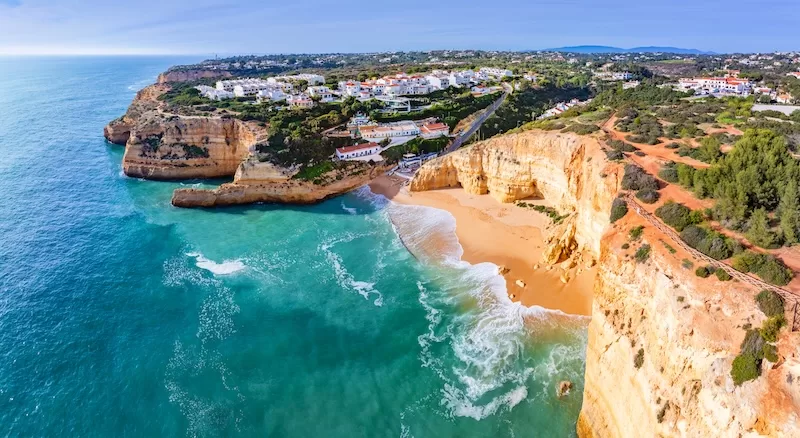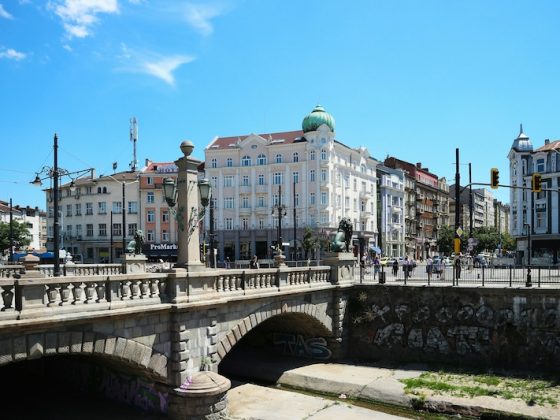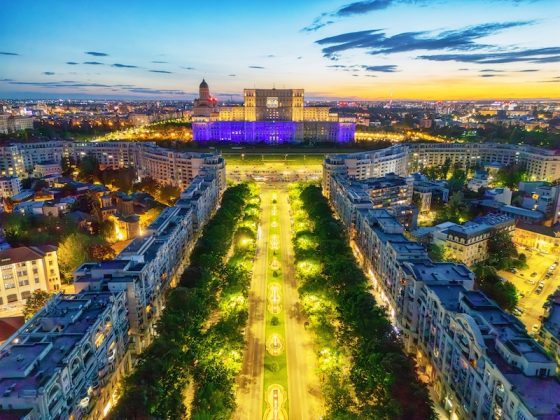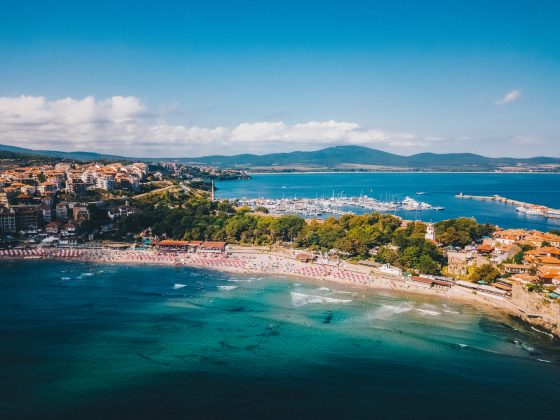Introduction
Imagine waking up to the sound of church bells echoing through cobblestone streets, sunlight spilling over tiled rooftops, and the smell of espresso drifting from the café downstairs. For many, that’s daily life in Portugal, a place where friendly smiles greet you with ease, meals stretch long and even the simplest routines feel touched by warmth. But beneath that postcard charm lies a very practical question: what does it actually cost to live here?
The cost of living in Portugal remains one of the country’s biggest draws. Compared to its Western European neighbors, Portugal still offers remarkable value: affordable housing outside major cities, fresh local produce at modest prices, and a public healthcare system that doesn’t drain your wallet. Yet, as Lisbon’s tech scene booms and coastal towns fill with expats and digital nomads, prices are shifting fast.
This 2025 guide breaks down what it really takes to live comfortably in Portugal, from rent and groceries to transport and healthcare, so you can plan with confidence. By the end, you’ll have a clear, data-driven roadmap to build your Portuguese life: sunlight, sea breeze, and all.
Understanding the “Cost of Living in Portugal”
Why It Varies by Region and City
Portugal may be small on a map, but its cost of living tells a story of contrasts, and those differences are rooted in economics, geography, and lifestyle.
In Lisbon and Porto, where azulejo façades meet rooftop bars and trams climb hills packed with tourists, prices reflect the pulse of urban life.

Jobs, tourism, and global investment converge, demand for housing and services pushes prices higher. The influx of digital nomads, multinational companies, and short-term rentals has intensified competition, especially near the coast and in trendy urban districts. Rent climbs, groceries and dining follow suit, and the cost of convenience rises with the city’s tempo. These hubs pulse with opportunity: international schools, co-working spaces, Michelin-starred restaurants, and boutique gyms all come with their own urban premium.
Head inland, though, and the rhythm changes. So does the math. Smaller towns and rural regions have lower population density, fewer tourists, and a stronger reliance on local production, which keeps prices grounded. In Alentejo’s rolling plains or the fishing villages along the Silver Coast, the economy moves at a slower pace: fresh produce comes from nearby farms, cafés cater to locals, and community takes precedence over consumption.
According to Numbeo, the average cost of living (excluding rent) for a single person in Portugal is about €688 per month. In Lisbon, that climbs closer to €900, while in smaller towns it can dip well below €600. The gap is striking, like the difference between living in downtown Manhattan and a peaceful college town. Same country, same sunshine, very different price tags.
Key Cost Drivers: Housing, Food, Transport, Utilities
When planning your budget in Portugal, four expenses carry the most weight:
- Housing / Rent — usually your biggest cost, especially in Lisbon, Porto, or coastal towns.
- Utilities & Internet — covering electricity, water, heating, and the fast Wi-Fi most remote workers depend on.
- Food & Groceries — shaped by your habits; local produce and market meals stay cheap, imported goods don’t.
- Transport & Commuting — from affordable metro passes to the higher costs of car ownership and fuel.
Together, these pillars define most of your monthly outflow. Everything else (like healthcare, entertainment, childcare) tends to orbit around them.
Typical Monthly Costs (2025 Estimates)
Single Person Budget
For a reasonably comfortable standard of living (not ultra-frugal but not extravagantly indulgent), expect to spend:
- €1,500 to €2000 per month including rent in cities
- E.g. Relocate.me estimates €1,622 for a single personand €4,000 for a family of four, including rent.
- €800 to €1,300 per month excluding rent
- Based on current 2025 averages across major cities, this range reflects typical monthly expenses for one person covering food, transport, entertainment, and daily essentials.
In smaller towns or rural areas, and depending on your lifestyle, your total could slide closer to the lower bound of that range.
Couple or Family Budget
For a couple or small family, monthly expenses typically rise:
- €2,500 to €4,000+ including rent, depending on location
- International Living suggests a couple “can live nicely on $2,500–$3,000” a month, as long as it’s outside big cities.
- For a family of four, estimates point to monthly costs of €3,516 (excluding rent) and with rent that number climbs further.
- Some sources suggest an average “comfortable budget” for a person is €1,773 and for a family of four €6,193.
These numbers reflect moderate lifestyles. If you favor premium schools, imported goods, frequent travel, or luxury housing, your costs could be much higher.
Breakdowns by Expense Category
Let’s zoom into each major cost bucket to see what drives the numbers.
Housing & Rent
Rent is where your Portuguese budget really starts to take shape, and where the differences between city and countryside hit hardest. In Lisbon or Porto, a one-bedroom apartment in the city center can easily run €800 to €1,500 or more each month, especially if you’re after sea views or walking distance to nightlife. Step just a few metro stops away, and prices calm down to €600 to €1,100, with quieter streets and more space to breathe.
Head inland, to the sun-drenched villages of Alentejo or the small towns along the Silver Coast, and you might find cozy apartments for €300 to €600 a month. Expatica pegs the average household’s combined rent and utilities around €820, though recent property booms (Reuters warns) have made affordable housing trickier to snag in big cities.
Think of Lisbon like New York or San Francisco: buzzing with energy, full of opportunity, and undeniably charming. The farther you move from the center, the lighter the rent, but the trade-off is time. If your job pulls you into the city every day, expect longer commutes by car or metro. But for remote workers, that distance can be a win: quieter mornings, lower costs, and more space to live the life you came for.
Read More Like This: Most Popular Expat Cities in Portugal
Utilities, Internet & Mobile
Utilities in Portugal are generally reasonable, but they add up in the background of your monthly budget. For a typical expat apartment of around 110 m², expect to spend €130 to €220 per month on essentials like electricity, gas, and water. These numbers tend to fluctuate with the seasons: winter heating can nudge bills higher, while summer air conditioning can have the same effect along the southern coast.
Internet plans usually hover between €25 and €40, and mobile contracts can range from €10 to €50, depending on how much data you burn through.
Still, compared to many Western countries, Portugal’s utility costs remain moderate, especially when paired with the country’s slower rhythm of life and generous sunlight that seems to stretch every euro just a little further.
Food & Groceries
Portugal’s food culture is a blessing for anyone watching their budget. Local markets brim with fresh fruit and vegetables, Atlantic fish, and regional cheeses, all at prices that make eating well surprisingly affordable. According to Numbeo, Portugal’s grocery index sits at 48.5 in cities like Lisbon (making grocery costs are about half those of major U.S. urban centers).

Eating out doesn’t break the bank either: a hearty meal at a mid-range restaurant usually costs €20 to €30 per person, and at neighborhood tascas (the family-run diners that locals love) you can find great meals for sometimes much less than that. If you look well, you can find diárias (hearty, home-cooked lunch menus that include soup, a main dish, a drink, and coffee) even at the big cities, from 7 to €15.
And the little luxuries stay humble too: a strong, short espresso (the beloved bica) rarely costs more than a euro, even in the capital, and a warm pastel de nata to go with it averages just €1.20 to €2.00.

If you lean into local ingredients and skip imported brands, your monthly food budget stretches far, proof that in Portugal, good living doesn’t have to mean high spending.
Transportation & Commuting
Getting around Portugal is generally easy (and often delightfully affordable) if you stick to public transport, at least in the main cities. Monthly metro or bus passes in major cities typically cost around €40-€50, giving you unlimited access to trams, subways, and local trains that run with reliable frequency. In smaller towns and rural areas, though, public transport can be sparse, irregular or downright non-existent, making a car less of a luxury and more of a necessity.
Intercity travel is also budget-friendly: a three-day rail pass costs about €73, opening the door to spontaneous weekends in Porto, Lisbon, or the Algarve without breaking the bank. A train ticket from Porto to Lisbon can run you €60 (there and back), but there are more affordable bus options, like Flixbus. Internal flights are also available at reasonable costs most of the time.
Uber, Bolt, and other ride-hailing apps operate widely across Portugal’s major cities, offering quick, cashless convenience alongside the country’s classic and reliable taxi services.
Fuel prices, however, are among Europe’s higher ones, which makes owning a car a more expensive choice. Between parking, insurance, maintenance, and fuel, driving can quickly inflate your monthly spending, especially in rural areas where distances are longer and public transit options thinner.
For most expats and city dwellers, the combination of public transit, biking, and the occasional ride-share offers the perfect balance between mobility and money saved.
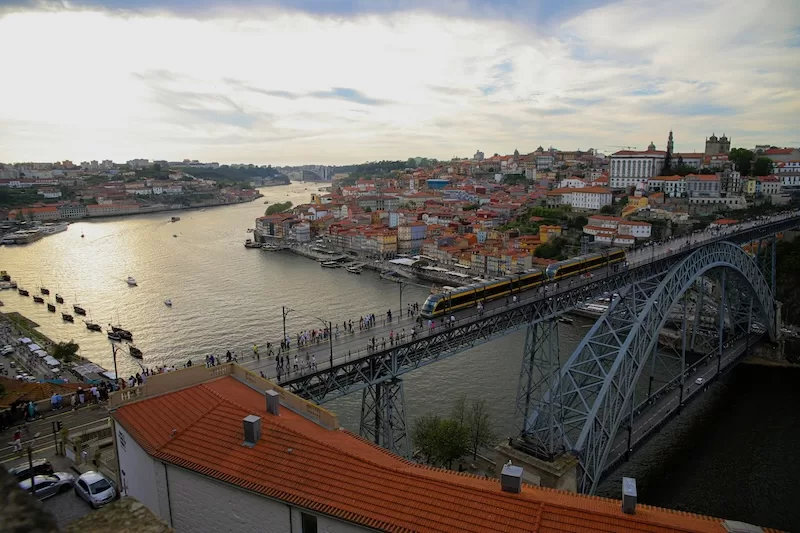
Healthcare & Insurance
Healthcare in Portugal strikes a rare balance between quality and cost, offering peace of mind without the price shock. The public system (SNS – Serviço Nacional de Saúde) is the backbone of care, providing everything from check-ups to emergency treatment for just a small fee. A hospital visit might only set you back €15 to €20, a fraction of what you’d pay in many other Western nations.
Still, many locals and expats opt for a layer of private coverage to skip queues and enjoy quicker appointments, often with English-speaking doctors. Private insurance is refreshingly affordable (typically €30 to €60 a month for individuals) making it easy to blend the strengths of both systems.
The result? Reliable, modern healthcare that feels accessible and humane, whether you’re seeing your family doctor in a seaside town or walking into a Lisbon clinic for specialist care.
Leisure, Entertainment & Miscellaneous
Leisure in Portugal is less about luxury and more about living well. A night out doesn’t have to mean splurging: dinner for two (€40-€50), a glass of local wine (€4-€8), and a film at the cinema (€10-€15, but cheaper if you find local film clubs with regular screenings) can easily fit into a modest budget.
Gyms, streaming services, and cultural outings all come at prices that make indulgence feel less extravagant. Step outside the tourist zones, and the value stretches even further: cafés where locals linger for hours over espresso, small theaters hosting live fado, and weekend markets that double as social gatherings.
For most people, setting aside €50 to €250 a month covers these small joys (the spontaneous dinners, the occasional concerts, the movies, the festival tickets, the beachside coffees) that transform daily life in Portugal from comfortable to magical.
Comparisons: Portugal vs Other Countries
Vs United States
- The cost of living (including rent) in Portugal is ~30% lower than in the U.S. according to Numbeo comparisons.
- Rent in Portugal is about 39% lower than U.S. average.
- Grocery and restaurant prices, too, are frequently 30–40% less in Portugal than in comparable U.S. cities. Global Citizen Solutions
Vs Western Europe
Portugal often ranks near the bottom (most affordable) among Western European countries.
- Expatistan ranks Portugal as the cheapest in Western Europe and cheaper than 56% of the 52 countries analyzed.
- That said, wages in Portugal are also typically lower than in many Western European nations, often being found as in the bottom ten salaries in the EU.
So, while costs are lower, your income expectations must align accordingly.
Strategies to Optimize Your Cost of Living
Choose your city wisely.
Where you live in Portugal can make or break your budget. Lisbon and Porto are vibrant but expensive, with rents rivaling other Western European cities. In contrast, secondary cities like Coimbra or Braga offer a lower cost of living without sacrificing culture, safety, or amenities. If you crave sea views, consider Setúbal or Aveiro, where you’ll still find that coastal charm at a fraction of Lisbon’s prices.
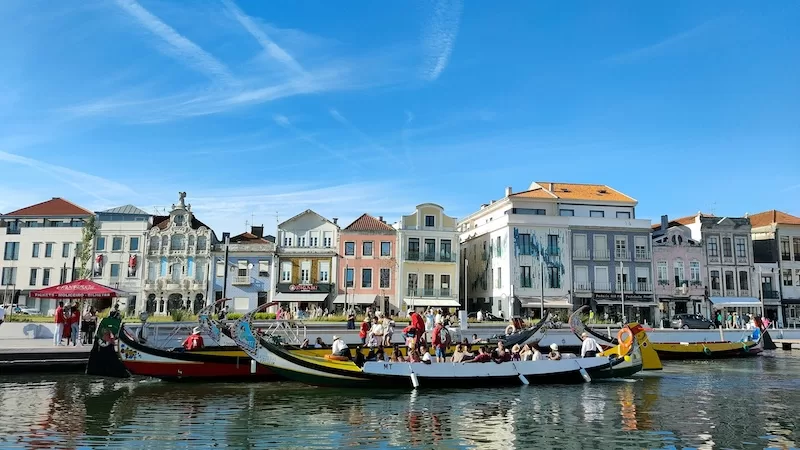
Read More Like This: Top 5 Places To Live In Portugal
Cook locally and seasonally.
Portuguese markets are a dream for anyone who loves food. Fresh fish from the coast, seasonal fruits, local cheeses, traditional enchidos (Portugal’s richly seasoned cured sausages, like the famous chouriço) in every variety, and hearty vegetables are not only delicious but far cheaper than imported products. Embrace the rhythm of the seasons (sardinha season in summer, roasted chestnuts in autumn) and your grocery bill will drop naturally while your meals taste even better.
Use public transit where possible.
Portugal’s public transport is clean, reliable, and well-connected in major cities. A monthly pass for €40–€50 gives you unlimited rides on trams, metros, and buses, making commuting stress-free and sustainable. Avoiding car ownership saves you hundreds each month in fuel, insurance, parking, and maintenance, especially when city parking can cost more than dinner for two.
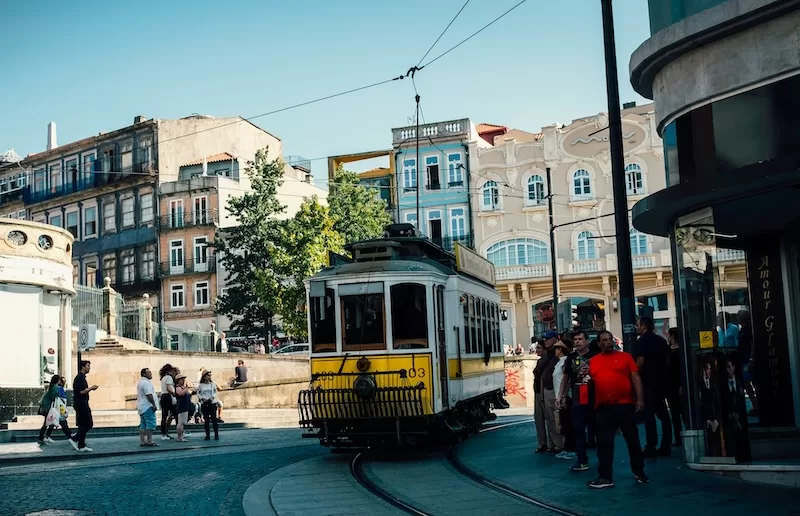
Health insurance combo.
Take advantage of Portugal’s excellent Serviço Nacional de Saúde (SNS) for affordable, quality care, and add a low-cost private plan for faster appointments or specialized services. This hybrid approach gives you flexibility and peace of mind while keeping monthly premiums as low as €30–€60.
Work remote or hybrid.
If your job allows, consider living in smaller cities or even rural towns while working for an international company. Digital nomads often find they can cut their living expenses by half while enjoying quieter surroundings and better quality of life. Places like Madeira or the Algarve are even building digital nomad communities with coworking spaces and strong internet infrastructure.
Negotiate rent and contracts.
In less competitive markets, landlords are often open to discussion, especially for long-term rentals. Don’t be afraid to negotiate for a lower monthly rate, included utilities, or furnishings. Offering a longer lease term or paying a few months upfront can strengthen your position and help secure a better deal.
Track your spending and set priorities.
Even in an affordable country, it’s easy for small expenses (daily coffees, extra streaming services) to add up. Use budgeting apps or local banking tools to monitor where your euros go, then adjust habits before they chip away at your savings.
Learn a bit of Portuguese.
A little language goes a long way. Speaking even basic Portuguese often earns goodwill from locals, and it can help you get fairer prices at markets, negotiate better deals, and feel more connected to your community. Plus, you’ll unlock a richer cultural experience that no app can replicate.
Take advantage of local discounts and memberships.
Many museums, theaters, and transport systems offer resident or student discounts that can save you hundreds over a year. Likewise, joining local loyalty programs (for supermarkets, cafés, or gyms) can offer steady savings without any real effort.

FAQs
Q1: Is Portugal expensive to live in?
It’s more affordable than many Western European countries and the U.S., but costs vary widely based on location and lifestyle.
Q2: How much does rent cost in Lisbon?
A one-bedroom in central Lisbon might run €900–€1,500+, while outskirts may be €600–€1,100.
Q3: Can you live in Portugal for €1,200 a month?
In smaller towns with modest housing, yes, but in major cities, it will be tight.
Q4: Is healthcare expensive in Portugal?
Public healthcare is subsidized, with modest fees; private insurance is affordable and often used to supplement.
Q5: How does Portugal’s cost compare to the U.S.?
Overall, Portugal is roughly 30–45% cheaper than the U.S. in many cost categories.
Finding Balance Between Cost and Comfort
Living well in Portugal is ultimately about finding balance: the sweet spot where affordability meets quality of life. It’s a country where simple pleasures still feel luxurious, where a morning espresso, ocean view, or weekend getaway don’t demand deep pockets. The real value of living here isn’t just in lower prices, but in how far your money—and your time—can go when life moves at a gentler pace.
By understanding where your money goes, what truly influences costs, and how to make smart daily choices, you can build a life in Portugal that feels not only affordable but deeply fulfilling. Maybe you’re an expat, retiree, or remote worker: whatever the case, Portugal offers a quality of life that’s hard to match. Sunshine, simplicity, and the sense that good living doesn’t have to come at a premium.
So, take this as your starting point. A roadmap to help you make informed decisions, avoid surprises, and turn your dream of living in Portugal into a sustainable, rewarding reality.
Contact Author
"*" indicates required fields
Stay Ahead on Every Adventure!
Stay updated with the World News on Escape Artist. Get all the travel news, international destinations, expat living, moving abroad, Lifestyle Tips, and digital nomad opportunities. Your next journey starts here—don’t miss a moment! Subscribe Now!
